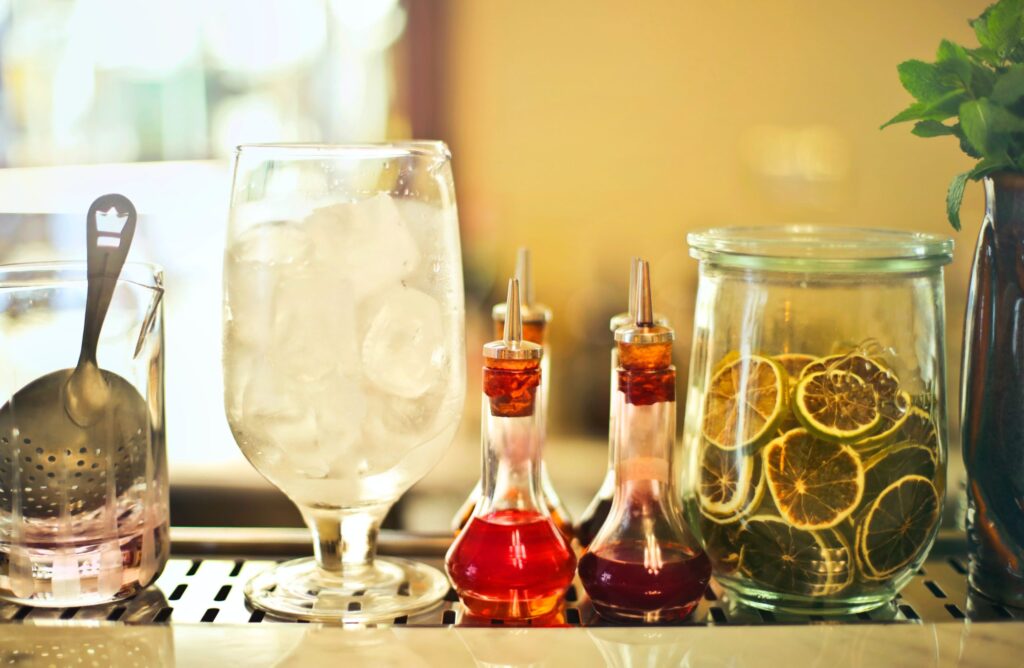Illinois’ Liquor Control Act of 1934 has long regulated the sale and consumption of alcoholic beverages in Illinois. While the law has seen several changes over the last eight decades, the most recent amendments address a novel variety of crafted drinks for the first time: liquor infusions.
An “infusion” is “a spirit where ingredients, including, but not limited to, fruits, spices, or nuts, are added to naturally infuse flavor into the spirit” (235 ILCS 5/6-22.5). Alcohol infusions are different from flavored liquors because they are typically made at the location where they are ultimately sold to consumers. Vodka infusions are the most common type, although other light liquors are also frequently used. The goal of an infusion is to add one or more flavors to a distilled spirit, creating a new or unique taste.
The ability to experiment with flavors is the primary draw for infusion enthusiasts who feel limited by the flavored liquors currently offered by manufacturers. Making an infusion is both time- and labor-intensive. Some infusions can be achieved in a matter of hours, while others require up to 2 weeks to achieve the desired result. Although sealed for the duration of the infusion period, once fresh fruit or other ingredients are introduced to liquor, it must be handled carefully for the safety of the consumer.
For this reason, the law clearly distinguishes a liquor infusion from pre-mixes, such as those for a margarita. While mixed drinks and pre-mixes are intended for immediate consumption, infusions are not. Sangria is exempt from infusion laws as well, primarily because the base ingredient of sangria is wine, not spirits. Therefore, sangria is not an infusion and so is not regulated like one.
A retail establishment that prepares infusions for public consumption on the premises must comply with several stringent requirements. The infusion must be mixed and stored on the premises licensed by the state; the container in which the infusion is stored must be sanitary and have a lid; the infusion cannot be aged for more than 14 days; and the infusion must be used or destroyed within 21 days after the aging process (235 ILCS 5/6-22.5).
There are also strict regulations governing the cleaning and labeling of infusion containers. For example, the establishment preparing infusions must keep cleaning records for infusion storage containers and provide them upon request to agents of the State Liquor Control Commission (235 ILCS 5/6-22.5). What is more, Illinois Liquor Control Commission Rule and Regulation 100.160(e) further requires that all dispensing containers must be drained and thoroughly cleaned at least once a week and that the person who performed the cleaning must sign off that it was done correctly. Any infusion produced on the premises must also be clearly labeled, with the ingredients, production date, and expiration date included on the container (235 ILCS 5/6-22.5).
Beyond these regulations, liquor infusions are subject to the same state laws that regulate the sale and consumption of all alcoholic beverages. Failure to follow these laws may result, at a minimum, in the suspension or revocation of the establishment’s liquor license. For this reason, a clear understanding and strict adherence to the regulations is not only essential to maintain consumer safety but to safeguard the longevity of retail establishments financial viability as well.



